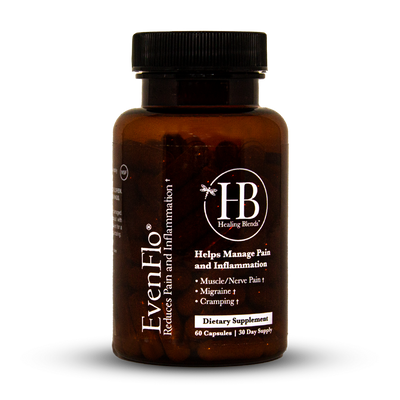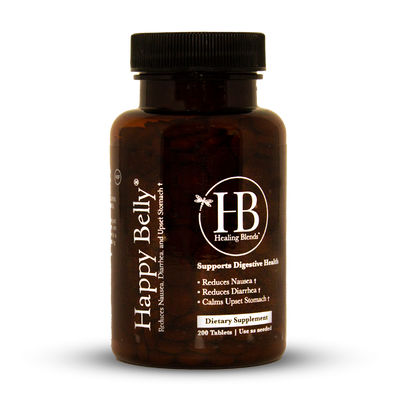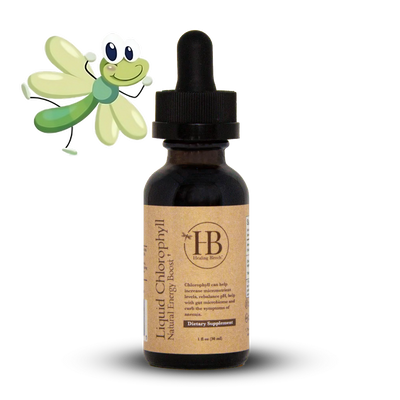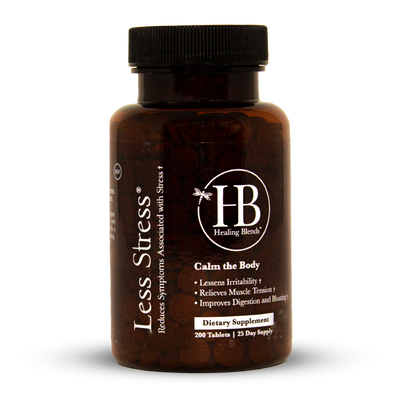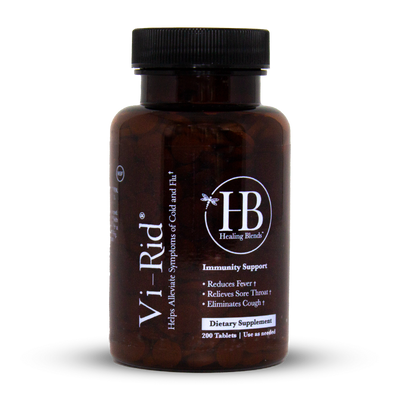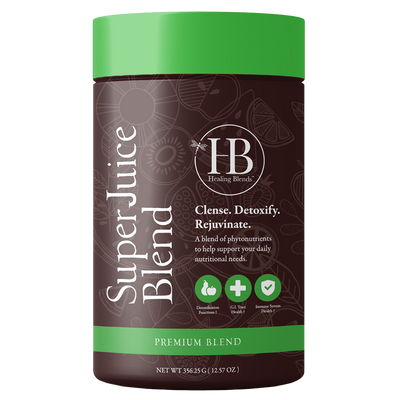How to Treat Menopause Symptoms Naturally: 4 Steps to Start Feeling Like Yourself Again
Menopause is a normal stage in the life of every woman. It is an inevitable part of aging that may start as early as mid-30’s, 40’s, or in most individuals, it can come as late as in their 50’s. When one experiences menopause, it marks the end of her monthly “period”. The result is the loss of fertility which means you can no longer get pregnant.
What Causes Menopause?
The reproductive age of women starts when the ovaries begin producing mature eggs and female hormones rise. This phase is the “fertile period” that allows the female body to support pregnancy. This is considered by some as the peak of femininity. Hormones like the Follicle Stimulating Hormone (FSH), Luteinizing Hormone (LH), and Gonadotropin-Releasing Hormone (GnRH) direct the ovarian follicles to mature and produce eggs. In turn, female hormones like progesterone and estrogen are produced and they cause noticeable body changes including vaginal elasticity and lubrication, breast enlargement, and uterine integrity.
But as the person ages, the body undergoes changes too, and so do the ovaries. Women enter the menopause stage when they begin losing the ability to produce eggs and hormones decline. Estrogen and progesterone are the key hormones that can significantly affect your life. They begin to decline in your 30’s and continue to go down as the menopausal period progresses.
What are the Symptoms of Menopause?
Although menopause is a normal occurrence, many women experience a variety of unwanted symptoms that can affect their overall quality of life. The transition from pre-menopausal to the menopausal stage is a normal physiologic course but diseases like cancer and hormonal imbalances can cause the early onset of symptoms. Most of the conditions related to menopause are due to the decreasing level of progesterone and estrogen.
Irregular Period:
Most women begin to suspect that they are entering the menopausal stage when they notice irregularities in their menstrual period. At one time, they experience heavy bleeding whereas, at other times, they have unusual lighter days. They may also report shorter cycles and in some instances, longer ones. The whole unpredictable stage is called as the perimenopausal period - the transition phase before the actual menopause. This can last for months to several years and often accompanied by many other symptoms.
Mood Swings:
Menopause comes with a roller coaster ride of emotions. It is characterized by frequent irritability, anxiety, and depression. You might find yourself getting annoyed easily, experience extreme sadness, and feelings of tension and nervousness over petty reasons. Simple things that do not matter before are handled with big a deal of emotions among menopausal women.
Hot Flashes and Night Sweats:
The symptoms are described as the sudden feelings of heat spreading through the face and neck. The hot flushes and night sweats happen because the female hormones affect your ability to control body temperature. The symptoms differ from one woman to another. It can be mild for some while for others, it can affect their daily living.
Sexual Changes:
The sexual changes associated with menopause put a toll on romantic relationships. Vaginal dryness and loss of sexual libido can frustrate a woman and her partner. Menopausal women may notice a decrease in their sexual desire. They become less sensitive to strokes and touches and male penetration becomes more painful and uncomfortable.
Physiologic Changes:
As the estrogen and progesterone decrease, a woman’s body becomes different. Sagging skin, weight gain, thinning of hair, dental issues, frequency of urination, smaller breast volume and muscle and joint pains all come with menopause. These changes can affect the overall self-confidence of women.
Sleep Disturbances:
Quality sleep is important but with perimenopause and menopause, this can be a far reality. Insomnia is reported in most women. Sleep disturbances include difficulty falling asleep, early morning awakening, lesser sleep time, failure to reach deep sleep stage, restlessness, and awakening in the middle of the night.
How to Treat Menopausal Symptoms
Menopause is not a disorder and as such, there is no need to treat the condition. All you have to do is to learn to live with it. The goal is to get control of the situation by managing the symptoms. You can remain healthy, beautiful and energetic while undergoing this unescapable phase in life. The saying “life begins at 40” is true. Despite the decline of hormones and loss of fertility, you can still be at your best.
Here are some of the things you can do to win the battle against menopause.
Natural Remedies
The best way to handle a normal physiologic process like menopause is to use natural remedies. They are the safest and most proven ways to at least minimize the annoying symptoms. Forget about drugs and medications. They are not the first line of treatment when it comes to decreasing the severity and duration of menopause symptoms.
1. Watch Your Food ChoicesYou probably have heard of the saying “you are what you eat”. Since food becomes a part of your body, you must be pickier if you want to manage the symptoms of menopause. You should be more concerned with adapting to a healthy diet. Instead of going for junk foods and empty calorie foods, you should go for foods high in nutrients but low in calories. They can help you prevent weight gain by improving your body’s metabolism.
Nutritionists have identified foods that help balance the hormones in your body and boost the body’s metabolism. Generally, you should go for more fruits and vegetables. If you are not used to these types of food, you should begin learning to love them. They can be your best friends in reducing the symptoms of menopause.
Here’s what you should look for when preparing your daily meals:
- Fiber: Fiber improves digestion and blood circulation. It helps stimulate healthy bowel movement and known to be a good way to reduce the bad cholesterol level. Several studies have also reported that fibers improve the level of estrogen to combat the negative signs of menopause like weight gain. Some sources of fiber include green leafy vegetables, carrots, beets, artichoke, brussels sprouts, lentils, beans, and legumes. Pears, strawberries, avocado, apples, and bananas are among the world’s most delicious and fiber-rich fruits.
- Phytoestrogen: Phytoestrogen comes from plants and its action is similar to the estrogen produced by humans. There are a lot of claims that the substance helps balance the hormone level among menopausal women. Although there are still no direct and solid studies to back up the testimonies of those who benefited from it, it will not hurt you if you try to incorporate it on your diet. You can get the plant-based hormone from broccoli, kale, cabbage, and fermented soy.
- Omega-3: It is a known fact that omega-3 is good for the heart. But its usefulness in managing other conditions like depression, cancer, osteoporosis and symptoms of menopause is something to look forward to. Omega- 3 is a healthy type of fat that comes from mackerel, salmon, sardines, herring, oysters, anchovies, caviar, flaxseeds, walnuts, and soybeans. Since many whole foods have the omega-3 in them, it should not be a major concern on where to obtain a sufficient amount of it.
- Good Bacteria: There are good and bad bacteria all around. The bad bacteria make you sick while the good bacteria help maintain your optimum health. During menopause, you have to get a daily source of healthy microorganisms to fight off infection associated with hormonal imbalances. Cultured foods like kimchi, probiotic drinks, yogurt, and other fermented foods boost the level of good bacteria in the body. When their number is maintained, they can better control the population of bad bacteria.
- Water: As plain as it may seem, water can reduce the symptoms of menopause especially the hot flashes and night sweats. Drinking at least 8 glasses of water every day can regulate body temperature. It helps flush out the toxins from the body and improve the body’s hydration. The recommendation is to drink even before you get thirsty. Always have a bottle of water ready anywhere you go to avoid the sudden feelings of heat.
While there are foods to indulge during the annoying phases of menopause, there are also some foods to avoid if you do not want to worsen your condition.
- Processed Foods: Canned goods and foods high in preservatives should be out of your food shelves the moment you experience the first signs of menopause. Although processed foods can be enticing to eat because they are easy to prepare and very tasty, they have a lot of chemical additives that can be toxic to your body. As a person ages, the last thing you should do is add more sodium and preservative in your weakening body.
- Sugary Foods: While sugar can boost your energy, it can also lead to weight gain if you consume too much of it. Start skipping those tempting and unhealthy desserts like cakes, ice creams, and chocolates. You can have a small portion of them but never give in to too many cravings. If you do, expect a series of health problems that can put your whole body in trouble.
- Carbonated Drinks and Alcohol: The body’s tolerance to soda and alcoholic beverages decreases as you reach middle life. Carbonated drinks can deplete calcium in the body and lead to osteoporosis. Too much alcohol is bad for the liver and it can worsen the hot flashes.
- Fatty Foods: If there are healthy fats, for sure, you are aware of the unhealthy fats. Fats from meat and from using too much processed oil when cooking can be detrimental. Gone are the days when your body can burn extra calories from French fries and burgers. When you enter the perimenopause stage, watch out for what you eat as these foods can make you gain more weight.
2. Take Supplements
Supplements coming from all-natural sources are beneficial in managing the symptoms of menopause. They have highly concentrated forms of important vitamins and minerals to boost the body during challenging times.
- Progesterone Cream: The concentrated form of the hormone is applied to the skin to prevent dryness and fight off the other symptoms associated with the declining hormone level. Since this is topically applied, you can control the amount of hormone you introduce in your body.
- American Ginseng: Ginseng is known to improve sexual libido. It can be taken by women at a dose of 600-1200 milligrams to increase their interest in sex and improve sexual lubrication.
- Botanicals and Herbs: Nature has its own way of healing. With menopause, you can go for natural food supplement sources like licorice root, chaste tree, wild yards, adaptogen herbs, evening primrose, St. John’s Wort, and sarsaparilla. Each of these has its specific action but they all offer protection against different diseases. To better enjoy their health benefits, you should work with an expert in herb medicine to learn how you can combine each.
- Maca Root: This herbal supplement improves the cortisol level in the body, boosts energy and increases sexual drive. It should be taken once a day at 1000-2000 milligrams.
- Black Cohosh: When taken 1-2 tablets daily, the supplement can reduce the symptoms of insomnia, hot flashes and night sweats. Frequent users have reported better quality sleep after using black cohosh for days.
- Vitex or Chasteberry: The food supplement has been clinically proven to balance the hormones among menopausal women. It relieves the symptoms of menopause like hot flashes, insomnia and skin dryness.
3. Use Essential Oils
Health practitioners recommend taking daily doses of essential oils to relieve stress, promote sleep, improve skin elasticity and reduce anxiety. Clary sage oil, peppermint, chamomile, and thyme oil are powerful natural remedies against the ill effects of menopause. They are available in alternative medicine stores, online stores and even in some drug stores. You can rub on the essential oils directly on your skin or mix it with other fragrances in a humidifier to bring out its strength. They are the best to use at night time after taking a relaxing bath. They create a relaxing atmosphere for sleep and even for a great romantic night with your partner.
4. Healthy Lifestyle
Menopause should summon you to begin a healthy lifestyle or reinforce it. Nothing beats a well-balanced living in combatting the symptoms of menopause.
- Get Rid of Stress: Menopause is in itself a stressful process. Thus, it is important that you do not add up to the tension level. There are different ways to manage your stress depending on what causes it. Generally, you can reduce stress and remain calm by managing your time and expectations, pampering yourself through massage, and engaging in meditation like yoga. Take things slowly and accept the fact that menopause is a natural process and soon, it will be over.
- Exercise Regularly: Menopause comes with osteoporosis, muscle wasting, weight gain, fat accumulation, and poor sleep. But with regular exercise, all these symptoms can be addressed. If you have not been very active in the past, today is the time to stretch those lazy muscles and get them working. You may begin with simple activities like brisk walking, jogging, and biking. There are also several organizations that offer community exercises like Zumba, and aerobics. Joining group exercises does not only improve your stamina but it can also be a great venue for meeting new friends.
- Have a Solid Social Support: Menopause is not just an individual problem. It can affect your social circle including your family relationships. Coping up with the physical and emotional symptoms requires a whole system approach. Seeking family support is just as important as finding the right supplements to balance your hormone level. Support from family and friends can help improve your overall quality of life. Sharing your feelings and concerns with your husband and children lightens your fears, gives you more hope and empowers you to take control of the situation.
Conclusion
Menopause is a normal part of aging that can make your midlife more challenging. Although it can mean relief from your pregnancy worries and monthly menstrual cramps, it comes with annoying symptoms and unsightly body changes. While it can be a struggling phase, there are steps that you can do to take control of the situation. Don’t let menopause get you. Start a healthy lifestyle, exercise and get much needed social support. In no time, you can happily say that all your menopausal symptoms are over and you get back in living your best life.
Bonus: Watch this video by Dr. Ware.
References:
- "Menopause Symptoms to Watch For and Ways to Relieve Them" via Dr. Axe
- "Botanical and Dietary Supplements for Menopausal Symptoms: What Works, What Doesn’t"
- "Menopause" via WebMD
- "Menopause: Overview" via InformedHealth.org












